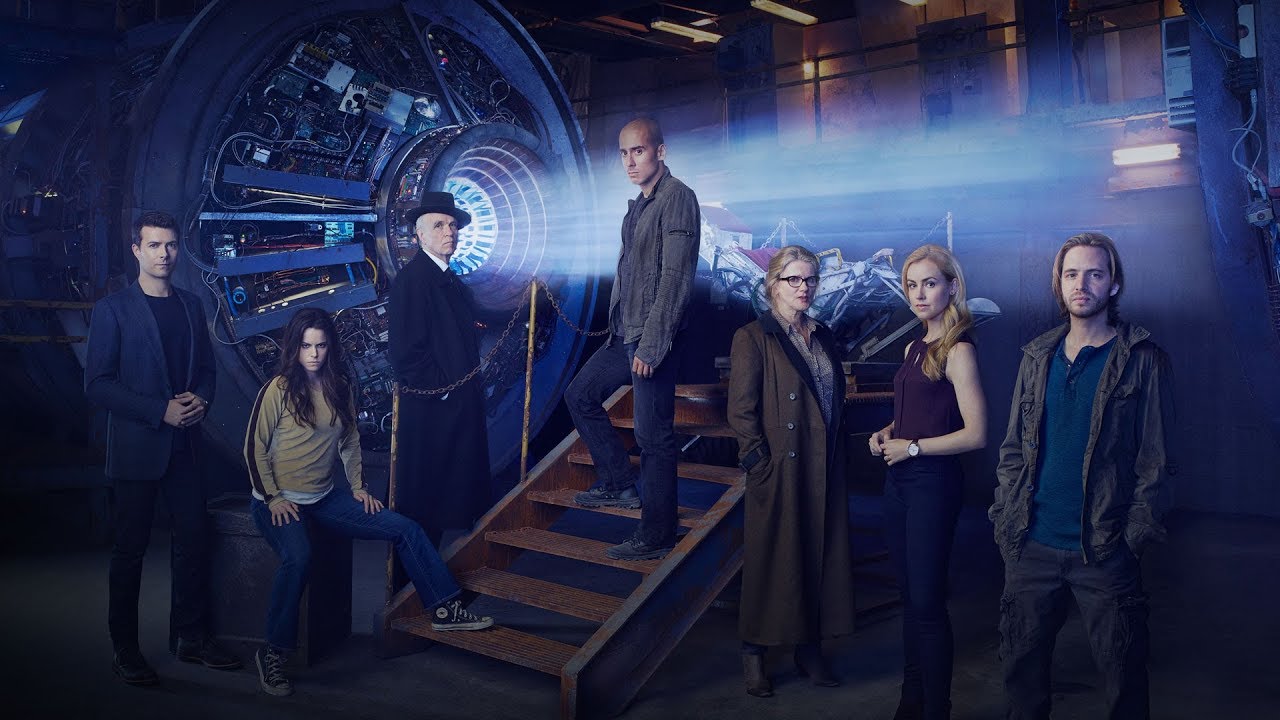
Initially, when it was disclosed that the 1995 cult favorite film “12 Monkeys,” directed by Terry Gilliam and starring Bruce Willis and Brad Pitt, was being remade into a TV series, followers of the original expressed considerable doubt. Given the movie’s distinctive mix of dystopian anxiety, time travel, and psychological drama, it seemed precarious at best and ill-advised at worst to extend its tightly constructed narrative into a multi-season tale. However, astonishingly, “12 Monkeys,” the TV series, not only succeeded but became one of the most innovative, emotionally impactful, and narratively satisfying sci-fi shows of contemporary times.
Debuting in early 2015 on Syfy and spanning four seasons, the series 12 Monkeys started with a recognizable setup: A devastating plague had nearly eradicated humanity, leading time traveler James Cole (Aaron Stanford) to journey back through time to trace the outbreak and prevent it.
12 Monkeys is a Tightly Wound Narrative About a Clock-Stopping Race Against Time

In essence, the TV series “12 Monkeys” mirrors the foundation of the movie, with Cole’s journey and intricate bond with the talented virologist, Dr. Cassandra Railly (Amanda Schull), as well as his chase after the enigmatic group called the Army of the 12 Monkeys serving as a starting point. However, it diverges significantly from there, using the movie’s narrative as a stepping stone for something much grander. It swiftly transforms into an expansive, genre-blending epic that combines time travel, dystopian horror, metaphysical mystery, romance, and mythological elements. The series skillfully navigates the complexities of time travel while avoiding logic traps that many shows with timelines and paradoxes often stumble upon. Unlike other shows, “12 Monkeys” views time as a puzzle and a character in its own right, embracing the chaos and constructing story arcs around fluctuating timelines, alternate futures, and histories that can only be rewritten at great cost. The mind-bending turns in the plot serve more than just shock value; they are intricately woven into the characters’ developing relationships and personal sacrifices.
Aaron Stanford’s James Cole exhibits a unique intensity compared to Bruce Willis’s portrayal, evolving from a rugged scavenger in a shattered future into a leader grappling with weighty decisions. Amanda Schull’s Dr. Cassandra Railly experiences one of the series’ most captivating transformations, moving from a strict scientist to a seasoned survivor who discovers that saving the world sometimes requires defying the rules. The chemistry between Stanford and Schull is electrifying, with their developing romance showcasing genuine complexity. Emily Hampshire portrays Jennifer Goines, a gender-swapped version of Brad Pitt’s manic character, Jeffrey Goines. Hampshire’s performance is both unexpected and memorable, as she masterfully transitions from an unstable patient who speaks in rhyme to a prophet, wildcard, and reluctant hero. Her journey is one of the most intriguing and fulfilling arcs in the series, with Hampshire demonstrating remarkable talent in moving seamlessly between eccentric chaos and heart-wrenching vulnerability.

In my perspective, the antagonists in this series are nothing less than legendary. The elusive Witness, the central enigma of the Army of the 12 Monkeys, transcends the conventional role of a faceless adversary. As his secrets and intentions unfold layer by layer, the narrative delves profoundly into complex themes such as free will, destiny, and the intricacies of time. The scriptwriters never opt for the simplistic path. Characters initially portrayed as villains are merely victims of their own tragedies. Trusted allies and friends are not immune to betrayal, and the boundary between hero and villain is frequently obscured by circumstances.
Science fiction series, particularly those incorporating time travel, frequently struggle to maintain coherence during their final seasons. They either end abruptly without resolving key plotlines or conclude with confusing resolutions. However, 12 Monkeys successfully avoids both pitfalls. The writers had a well-defined plan, and the series finale is a testament to how to perfectly tie up an expansive storyline. It’s emotional, fulfilling, and filled with references that delight long-time viewers without confusing casual ones. But what truly sets 12 Monkeys apart is its focus on the individuals within the narrative. Time travel, pandemics, paradoxes, and destiny may seem abstract, but in this show, they are deeply personal. Every plot twist, every time leap, carries an emotional impact. It’s a series that manages to be both intelligent and heartfelt, intricate yet easy to understand. It dares to be optimistic in a genre often characterized by despair.
If you’ve passed on this series believing it’s just another rehash of a ’90s cult movie, you might want to give it another look. The series “12 Monkeys” is a fresh take, an audacious and poignantly portrayed science fiction epic that respects its original while establishing its own distinct identity. Initially, it seemed to follow in the footsteps of a classic, but it soon broke free from those shadows and evolved into one of the most remarkable sci-fi stories ever presented on television.
https://comicbook.com/anime/news/link-click-time-travel-anime-trope/embed/#
Read More
- Best Controller Settings for ARC Raiders
- Ashes of Creation Rogue Guide for Beginners
- 7 Home Alone Moments That Still Make No Sense (And #2 Is a Plot Hole)
- Stephen Colbert Jokes This Could Be Next Job After Late Show Canceled
- DCU Nightwing Contender Addresses Casting Rumors & Reveals His Other Dream DC Role [Exclusive]
- 10 X-Men Batman Could Beat (Ranked By How Hard It’d Be)
- Is XRP ETF the New Stock Market Rockstar? Find Out Why Everyone’s Obsessed!
- 10 Most Brutal Acts Of Revenge In Marvel Comics History
- Katy Perry and Justin Trudeau Hold Hands in First Joint Appearance
- A Major Demon Slayer Movie Is Coming to 4K Blu-ray (But Not the One You Think)
2025-07-26 14:40